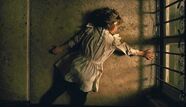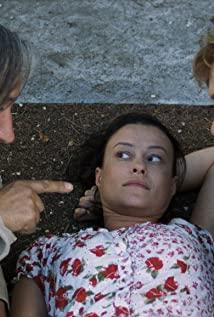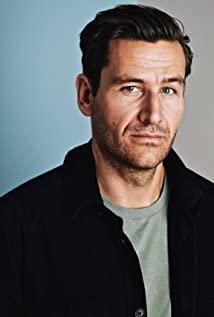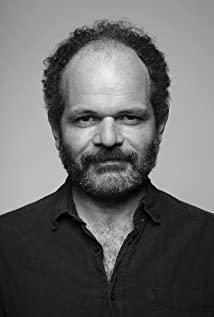An angel of the Lord stood beside them, and the glory of the Lord shone on them all around, and the shepherds were terrified.
The angel said to them, "Don't be afraid! The message I am giving you great joy is of all peoples.
Because today in the city of David, the Savior is born for you, the Lord Christ.
You will see a baby, Bao Bao . cloths and lying in a manger, and that is the mark of the "
suddenly, there is a large group of heavenly praise with the angel of God said:" glory to God in the highest, and on earth peace among men with whom he is happy!
Yue man "!
- ——— "Luke 2:1"
On Christmas Eve in 1918, the war in Europe was coming to an end. In a Catholic church outside Paris, this new American boy wore simple costumes with many local peers and rehearsed a small scene about the birth of Jesus. The little boy played the angel who announced the birth of the savior to the shepherd. He tried his best to pronounce lines in jerky French. His clean face and messy long blond hair made him look out of place among a group of country kids, even more bizarre. Yes, after the rehearsal was over, the kid hid in the dark and threw stones at the adults. After being found, he ran into the dark-shrouded forest without looking back and fell to the ground. After a while, his pious, thin, and serious Catholic mother took her son's body from the adult who was chasing her with a look of loss, and softly comforted the boy who had long lost consciousness. At the same time, the boy's father—President Woodrow Wilson’s staff—stays with friends in a nearly deserted mansion, discussing chaotic times, wars, and humanity over whiskey. This majestic and wise man looked a bit depressed. His call to duty followed the president to France, and he and his family had to stay in this shabby and gloomy place for several months. When his wife returned home with the unconscious boy and mentioned the child's weird behavior, he said: "I will talk to him tomorrow." However, anyone with a discerning eye can find the confusion and indifference in his father's words. After washing the blood from the child, the mother is ready to comfort the child to sleep. At this time, the night is already very deep.
This is the first act of the movie "Childhood Before the War". Next, the angel who descended to Bethlehem is about to suffer terrible oppression and torture, and is reborn as a demon from this dark womb. This film is a psychological profile of a totalitarian leader, describing how family power and social power build a distorted totalitarian personality step by step on the foundation of the evil of nature. It is also an allusion to become conceived after World War I. In the European social fables, a hotbed of fascism, the boy in the film refers to the totalitarian regime itself, and the various behaviors that make the boy's personality gradually fall into darkness, in fact, represent the soil that breeds totalitarianism in a broad sense. Its conception is quite grand, but it can still be described in a solid and detailed manner from the perspective of children with a smaller structure, making the transformation of boys and the formation of the character of totalitarians seem reasonable and reasonable without losing its unique symbolic meaning. The two meanings are intertwined with each other. This is certainly derived from the existing settings in Sartre’s original work. As an adaptation, the director’s creation of a repressive, gloomy, violent atmosphere and the display of the details of the characters’ psychological activities It's top-notch. The cold and pale tone of the picture, the blunt mirroring and editing, the regular but lacklustre composition, and the weird soundtrack that sometimes roars and screams all bring a heavy, anxious, and chilling look. These elements run through the three chapters divided in the film. In this progressive process, the opportunities that turned a boy into a dictator are revealed one by one, and the other clue led by the boy’s father is defeated. The country’s ruling on the fate of the defeated country is gradually settled in a greedy chaos, just as the boy with the long hair and shawl could not foresee that he would eventually become a terrible bald totalitarian leader, who was determined on the map at that time. The bureaucrats of the fate of the country and the people also cannot know that the old imperialism they represent will be dusted and abandoned, and replaced by purer and evil totalitarianism. Therefore, under the mechanism of causality, the burdens and torture imposed on the boy are about to ferment with the evil in him, and the various actions he will impose on his people in the future are also beginning to emerge at this time.
The boy was born in a typical elite middle-class family. His father was a high-ranking government official and his mother was an intellectual. In the era when the world has been connected as a whole, they call themselves citizens of the world from the standpoint of the leader and the oppressor to demonstrate a one-sided sense of responsibility. However, this family is undoubtedly also rigid and conservative and lacks the warmth that a family should have. The boy's emotions have no channels for expression. His busy father is cynical and unresponsive and irresponsible with family affairs; his mother is a devout Catholic, who is disciplined and unquestioned. He likes to educate his son with dogma and admonition rather than emotion, so that he can behave properly. She was worried about her son’s erratic behavior, but she couldn’t understand it at all. She could only use various coercive methods to strictly discipline her: dismissing the old maid who cared about the boy; forcing him to leave the room without providing food; forcing him Apologizing to the priest, this practice is actually to indulge in the evil in the boy's heart, causing him to make a more violent backlash and finally completely break away from the mechanical restraint and control of his mother. On the other hand, what the boy’s father imposes on his children is cold indifference and even disgust. He fundamentally gave up understanding his son, but he asked him to recognize his absolute authority, respect him unconditionally, and use similar powers to deal with defeated countries. His attitude and methods, arbitrarily criticized and scolded and even confronted each other. It is not difficult to see that the behavior of the boy’s parents provided him with a model for totalitarian rule. After being honed by the family’s power and ruthlessly, he learned to block all his emotions. The smart he also learned the same way and began to treat others. Qi instructed, violently resisted and resolutely retaliated against things that went against his will, and even "ordered" himself because he didn't want to go out with his mother: "It will rain every day this week". The attitude of a fascist whose hands are covered with rain should be expected, and the reaction of one parent after seeing the change of his son-futile counterattack, helpless surrender or total ignorance, may be the manifestation of the policy of appeasement.
All kinds of atrocities from the outside world are the catalyst of totalitarianism, and in the process of turning into a dictator, the boy's heart is constantly undergoing changes. The first thing to bear is the awakening of sex. In the face of the kind and kind old maid and the beautiful and gentle tutor Ada, the boy began to try to understand the irresistible desire. However, in such a repressive environment, it was ruthlessly blocked and even ruthlessly blocked. Shattered, this lack of desire and emotion made him more cold; secondly, he was confused about his self-cognition and self-positioning. He insisted on keeping long hair and was repeatedly confessed to the wrong gender and exposed his body. His father's relentless chasing, this dislocation made him confused and angry, and he had to seek a solution to totalitarianism, because everything in the totalitarian context maintains absolute order; what's more, it is the collapse of faith and the benevolence. The good priest forced him to bow his head to admit his mistake in front of everyone who left the church, while most of the passers-by did not care about the statement made by the thin and poor figure standing next to the priest. This cruel blow to self-esteem made the boy The complete loss of faith in religion-a power to regulate society-also caused him to develop a retaliatory mentality against the system.
As a result, under the distortion and reshaping of internal and external forces, the boy embarked on that dark road. The angel in the church announcing the birth of Jesus was gone, and replaced by a demon who ruled hell with absolute authority. In this joint force, some are just unintentional or helpless actions, some are complications of indifference, some are rapes from the system, and there are also wrong expressions of care and even the evil inherent in human nature and personality. However, those involved— —The adults around the boy — but none of them noticed their irrationality and cruelty, but just let it go, letting this force act recklessly against the boy. This arrogance of turning a blind eye and knowing nothing may be the root cause of totalitarianism.
View more about The Childhood of a Leader reviews











